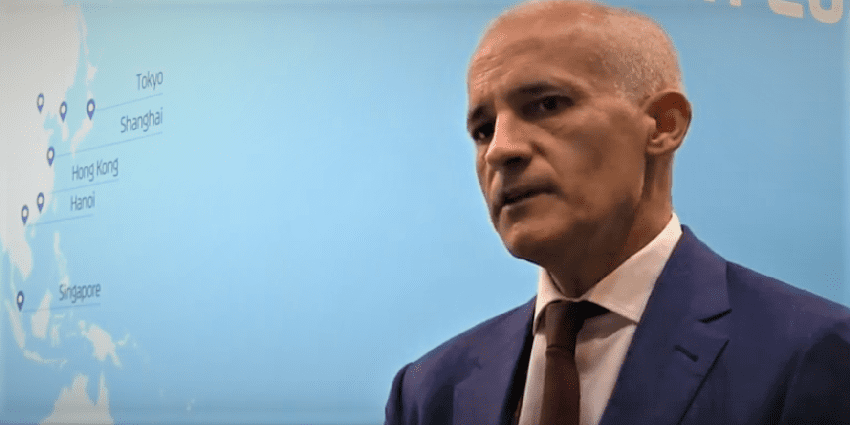- Trade finance revenues remain unaffected amidst high tariffs, trade tensions and falling trade volumes
- Security and trust are pushed higher up corporates’ agendas, allowing trade finance to stay in demand even when trade flows drop
- Government initiatives that stimulate global trade indicate an eastward shift of influence to Asia, and it is now up to banks to capitalise on this potential
Deepening geopolitical rifts have unsettled the global economy in recent years. On 1 October 2019, the World Trade Organisation cut trade growth forecasts for 2020 from 3% to 2.7% – representing a steady decrease from 2017’s growth rate of 4%. It may seem like bad news for trade finance, but the truth is not so clear-cut.
Despite a backdrop of economic unrest, trade finance revenues can remain stable. In fact, trade finance revenues saw a 3% increase in 2018.
One reason behind this could be that, in a climate of high risks and tariffs, security becomes a priority for corporate treasurers. Trade finance provides this, with banks forging trust between buyers and suppliers. There may be fewer trades going through, but a higher proportion of these are secured via finance. Essentially, the factors that suppress trade volumes also stimulate demand for trade finance on the deals that go ahead.
So whether the coming year will bring relief and expansion or further tension and contraction, there may yet be reason to be optimistic for trade finance in 2020.
Economic influence shifts to Asia
That’s not to say that growth in trade volumes is neither desirable nor impossible. A strong path toward further growth is the continued search of governments around the world for opportunities and investment in burgeoning Asian economies.
China’s Belt and Road Initiative (BRI) is a prime example. The BRI is one of the largest infrastructure development initiatives ever formulated, spanning from East Asia to Europe. To give a full sense of its scale is difficult, but wealth management firm Morgan Stanley predicts that by 2027, China’s expenses on the project will have exceeded $1.2 trillion.
This vast and ambitious project may represent a shift in the world’s economic centre of influence. Where Europe and the United States were once regarded as the sole hubs of economic activity, Asia now boasts a wealth of opportunities and emerging markets that speak to a vibrant economic future. As the project expands its reach, there is scope from banks beyond China to participate in projects like the BRI and help stimulate trade.
Beyond large-scale developments, banks can also support Asia’s growing pool of small and medium-sized enterprises (SMEs). And yet, to meet the financing demands of Asia’s real economy, innovative technological solutions may be required to help streamline the process.
Innovative solutions poised to bridge gaps
One of the most promising solutions of this kind is we.trade – a blockchain-powered digital trading platform that deploys smart contracts and distributed ledger technology to enable SMEs to trade efficiently and safely. What’s more, once the clauses of a given trade contract have been closed, the counterparties have the option to choose from an array of financing options to facilitate the deal.
Pilots have already been undertaken to connect digital trading platforms across both Europe and Asia. For example, the management board of we.trade recently signed a memorandum of understanding with eTradeConnect, a corporate-to-bank trade finance portal launched by the Hong Kong Monetary Authority. The goal is to connect local trading platforms and ensure cross-border trade finance becomes faster, easier and even more secure.
As these developments take root, there is an opportunity to establish a streamlined digital trade corridor between Asia and Europe, stimulating the global economy and boosting trade volumes. Whilst trade volumes continue to struggle in a difficult environment, trade finance will continue to find a way – connecting east to west and providing security where it’s most needed.
Luca Corsini is the Head of Global Transaction Banking at UniCredit




All Comments